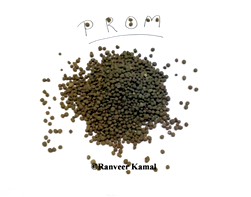Author: Mr. Ranveer K. Kamal, M.Sc
Quality Control, Terra Agro Biotech, Jaipur
Rajasthan, India
As the famers are not much familiar with PROM, still use traditional fertilisers for their crops. This is very serious problem for all, these fertiliser harm the soil as well as environment, livestock, humans etc. Excessive use of chemical fertiliser such as Single Super Phosphate (SSP), Diammonium phosphate (DAP), Monoammonium phosphate (MAP) etc. in agriculture mitigates the number of free living beneficial microorganisms; those are directly or indirectly useful for any crop. Because the amount of these fertiliser ustilised by plant upto 30% only. The remaining amount of these fertilisers accumulated in the soil and constantly increases the soil pH. This is a serious concern for agriculture.
PROM technology introduced in India and has been included in Fertiliser Control Order (FCO), 1985 w.e.f. 22.06.2012.F248 by Department of Fertiliser, Ministry of Chemicals and Fertilizers, Govt. of India. (Source)
PROM is manufactured and marketed in India by different agro Industries; they follow different process of production. PROM is produced by co-composting of high grade (32% P2O5) rock phosphate in very fine size with organic manure such as Compost, Vermi-compost, Cow dung, Soy meal, domestic kitchen waste etc. The efficiency of PROM is totally depended on the particle size of rock phosphate. More the fine of rock phosphate, more the efficiency of PROM. Rock phosphate is soluble phosphate and it is effective in both acidic and alkaline soil.

Picture : PROM in granulated form
PROM is a very good source of Phosphate (P) and it is very much important compound in plant DNA and RNA. The other role of P in plant is seed production, crop maturity and root development etc.
The farmers should be aware about the agronomical benefits of PROM, towards the sustainable agriculture.
About Author / Additional Info: